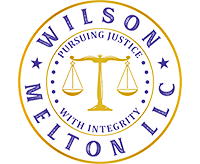Your Employer Should Not Retaliate Against You
It is illegal for an employer to retaliate against an employee because of the employee’s complaints about unlawful workplace discrimination or harassment. Unlawful retaliation is quickly growing to be one of the fastest forms of wrongful discharge.
You should not embolden your employer by remaining silent about unlawful workplace retaliation. Your voice counts. Allow our experienced team of attorneys at Wilson Melton, LLC, to represent you in your fight for justice.
What You Should Know About Retaliation
The law surrounding unlawful retaliation is complex and can be a complicated process to navigate. To educate you about your rights, we have provided some answers to frequently asked questions about unlawful workplace retaliation.
What can I do to prove unlawful retaliation?
To successfully pursue a retaliation claim, you generally must prove that:
- You engaged in protected activity (complained about unlawful harassment or discrimination);
- You suffered a negative employment action (demotion, termination, cut in pay, etc.); and
- The employer was motivated to retaliate against you.
Two critical factors to support your unlawful retaliation claim can be timing and evidence that the bad actor knew about your protected activity. If the adverse action happens close in time to your protected activity, and the bad actor was aware of your protected conduct, then there is typically a strong inference that the bad actor retaliated against you because of your complaints of unlawful harassment or discrimination.
Your complaint can be on behalf of yourself or another employee whom you reasonably believe was subjected to unlawful discrimination or harassment. Generally, complaints about personality conflicts between coworkers and supervisors or difficult work assignments are not considered protected activities.
Which laws protect workers from retaliation?
Many federal employment laws prohibit an employer from firing or retaliating against an employee for engaging in protected conduct. These federal laws include Title VII of the Civil Rights Act of 1964, the Americans with Disabilities Act, the Fair Labor Standards Act, the Age Discrimination in Employment Act, the Uniformed Services Employment and Reemployment Rights Act, Genetic Information Nondiscrimination Act, the National Labor Relations Act, the False Claims Act, the Rehabilitation Act, the Equal Pay Act and many others.
What is protected conduct for which an employer cannot retaliate against you?
The forms of protected conduct include:
- Refusing to perform discriminatory practices;
- Reporting employment discrimination to the manager or human resources; and
- Complaining to the Equal Employment Opportunity Commission (EEOC) or Indiana Civil Rights Commission.
If your employer retaliates against you for any of the aforementioned activities, you might have an actionable case.
Have You Experienced Unlawful Retaliation?
If you believe you have suffered workplace retaliation, you should consult the experienced retaliation lawyers at Wilson Melton, LLC. We provide free initial consultations. You can call us at 317-827-8302 or send us an email to schedule yours today.

